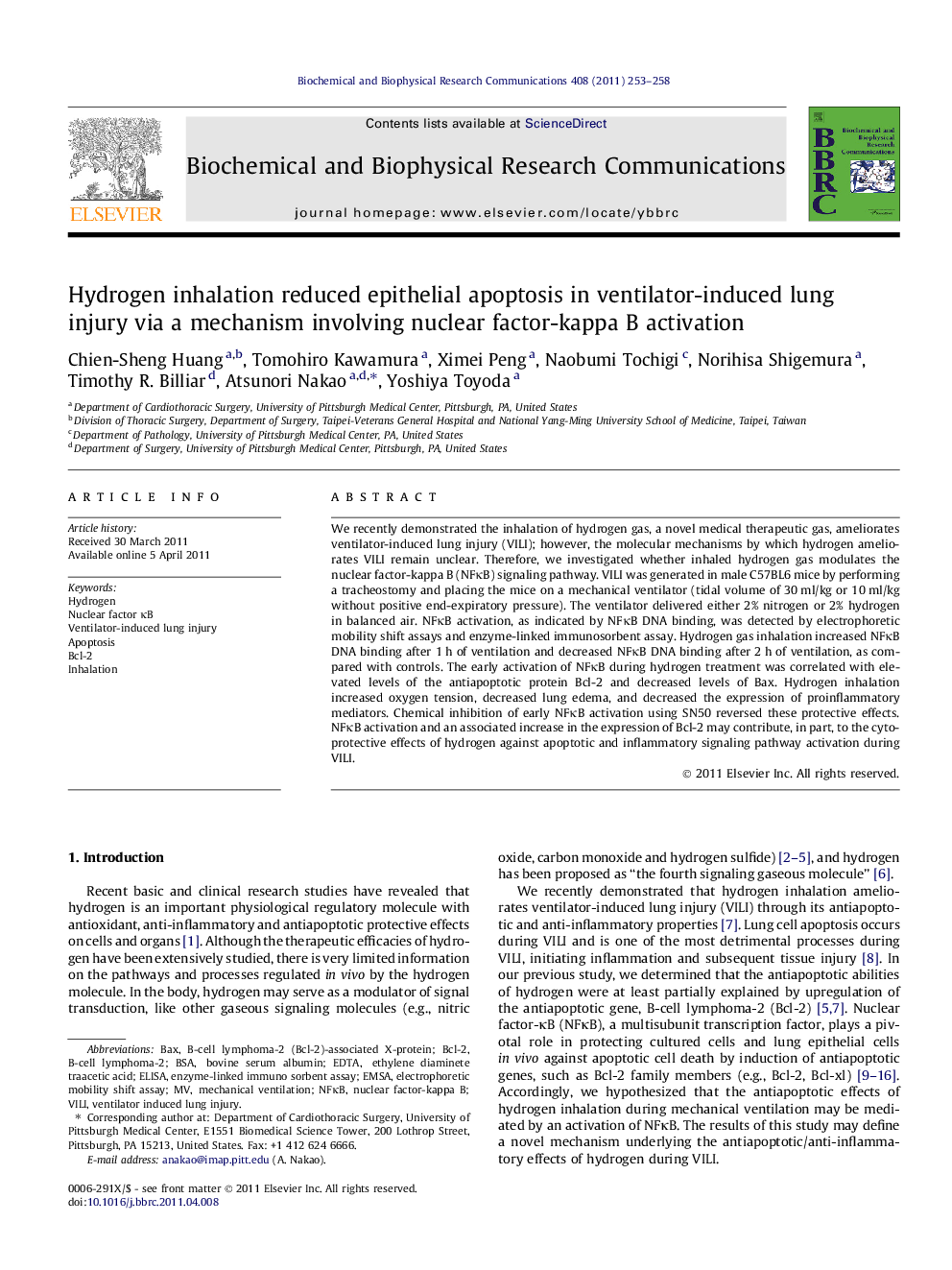| کد مقاله | کد نشریه | سال انتشار | مقاله انگلیسی | نسخه تمام متن |
|---|---|---|---|---|
| 1930638 | 1050521 | 2011 | 6 صفحه PDF | دانلود رایگان |

We recently demonstrated the inhalation of hydrogen gas, a novel medical therapeutic gas, ameliorates ventilator-induced lung injury (VILI); however, the molecular mechanisms by which hydrogen ameliorates VILI remain unclear. Therefore, we investigated whether inhaled hydrogen gas modulates the nuclear factor-kappa B (NFκB) signaling pathway. VILI was generated in male C57BL6 mice by performing a tracheostomy and placing the mice on a mechanical ventilator (tidal volume of 30 ml/kg or 10 ml/kg without positive end-expiratory pressure). The ventilator delivered either 2% nitrogen or 2% hydrogen in balanced air. NFκB activation, as indicated by NFκB DNA binding, was detected by electrophoretic mobility shift assays and enzyme-linked immunosorbent assay. Hydrogen gas inhalation increased NFκB DNA binding after 1 h of ventilation and decreased NFκB DNA binding after 2 h of ventilation, as compared with controls. The early activation of NFκB during hydrogen treatment was correlated with elevated levels of the antiapoptotic protein Bcl-2 and decreased levels of Bax. Hydrogen inhalation increased oxygen tension, decreased lung edema, and decreased the expression of proinflammatory mediators. Chemical inhibition of early NFκB activation using SN50 reversed these protective effects. NFκB activation and an associated increase in the expression of Bcl-2 may contribute, in part, to the cytoprotective effects of hydrogen against apoptotic and inflammatory signaling pathway activation during VILI.
► Hydrogen is a regulatory molecule with antiinflammatory and antiapoptotic protective effects.
► There is very limited information on the pathways regulated in vivo by the hydrogen.
► Antiapoptotic abilities of hydrogen were explained by upregulation of the antiapoptotic gene.
► NFκB activation during hydrogen treatment was correlated with elevated antiapoptotic protein.
► NFκB activation associated with increase Bcl-2 may contribute to cytoprotection of hydrogen.
Journal: Biochemical and Biophysical Research Communications - Volume 408, Issue 2, 6 May 2011, Pages 253–258